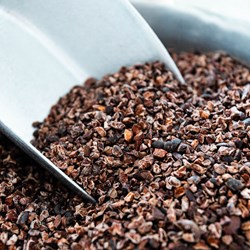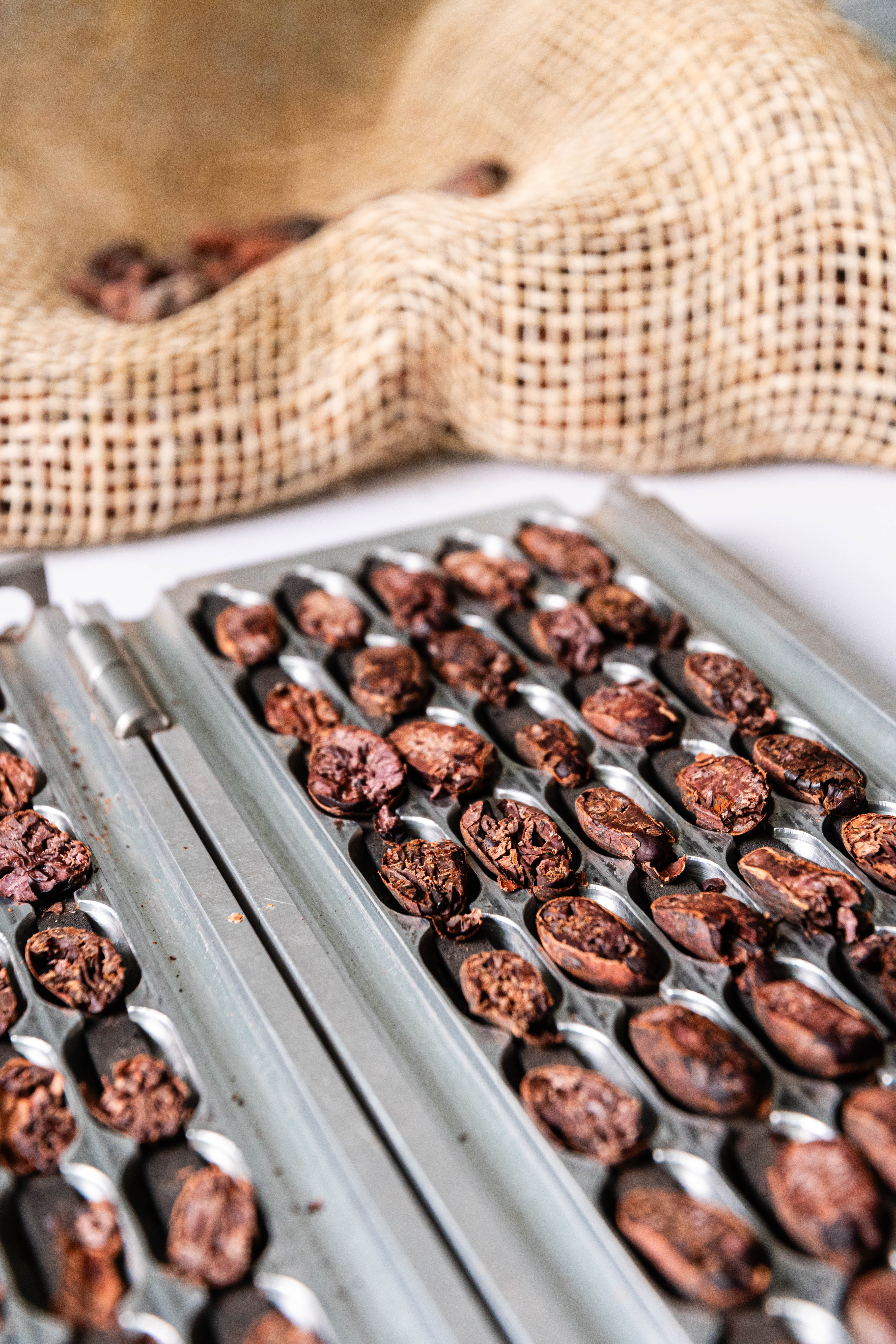


The chocolate industry is facing an unprecedented challenge. Climate change and years of underinvestment in cocoa plantations have led to a drastic rise in cocoa prices in the last year.
“In April this year the price of cocoa was at its highest level ever. It is expected that prices will stabilise again, but at a level two to three times higher than before.” Replacing cocoa as an ingredient is one possible way of holding back the cost price, explains Claudia Delbaere of Cacaolab.
Companies which produce chocolate and companies which use chocolate as an ingredient are now more than ever in search of innovative, sustainable solutions to lower the costs of cocoa and chocolate products, says Claudia Delbaere, general manager of Cacaolab. This company developed as a spin-off of Ghent University, and now supports food companies with their R&D. Clients of Cacaolab are largely chocolate producers, but also producers of foodstuffs and food companies which use cocoa or chocolate as ingredients in their products, such as confectionery, bakery and patisserie products, drinks, ice creams or desserts and dairy products.

Cocoa alternatives
Chocolate consists primarily of cocoa solids, cocoa butter and sugar. Milk and white chocolate also contain powdered milk and dairy fat. White chocolate leaves out cocoa solids. “To put pressure on the costs of cocoa as an ingredient, replacing cocoa butter is the most obvious solution, since this is the most expensive ingredient”, explains Delbaere. “Cocoa butter equivalents such as shea butter could partially or wholly replace cocoa butter. However, in Europe a maximum 5% is permitted for use in chocolate. Cocoa butter replacements such as coconut fat and palm kernel oil can also be used, but then we are talking about ‘compound chocolate’.” One option is to also look at dispersants. Delbaere: “With optimal dosage of, for instance, soya lecithin, less cocoa butter is required in the final chocolate”.

One alternative partial replacement for cocoa solids or powder could be carob, for example, Delbaere says. Carob is a powder made from the flesh of the fruit from the pods of the carob tree. It is a brown powder with a flavour which is reminiscent of cocoa, but with a sweet flavour. Products based on rolled oats, barley, spent grain from brewing or legumes also have the potential to replace cocoa solids or powder.

Seminar
In her presentation as part of the seminar programme at the Intrafood fair, Delbaere goes into particular detail on the rising trend for reduced cocoa and cacao chocolate as a possible solution in order to improve the sustainability of the chocolate industry. “We will go further into the development of innovative alternatives for traditional cocoa-based products, with an emphasis on ingredients such as carob and other plant-based substitutes which can mimic the flavour, scents and texture of chocolate. Solutions to replace or reduce cocoa powder and cocoa butter will also be looked at.”

“It is always advisable to maintain a critical perspective on your own products and adjust them to contemporary needs where necessary”, emphasises Marijke Adriaens, CEO of frozen food company Fribona. “For consumers, taste is still the main consideration. It is essential to work towards a product that is, above all, tasty and visually appealing.”...

Scientists from KU Leuven have discovered how oil penetrates snacks during and after the frying process. Recent research findings point to advanced frying techniques that reduce oil absorption, as well as innovative methods to limit oil uptake during the cooling phase. This paves the way for the development of healthier snacks without compromising...

Food companies are increasingly targeting a wider range of consumer groups. Speaking at an event organised by Fenavian, Julian Mellentin of New Nutrition Business said this strategy offers significant opportunities to respond to the diverse health needs and interests of today’s consumers. “Consumers enjoy both animal and plant-based proteins”, he...

Backed by financial partners, Start it @KBC is launching the accelerator programme Scale it Agro, aimed at scale-ups offering sustainable and innovative agricultural solutions for agriculture and horticulture businesses. Kjell Clarysse, programme director at Scale it Agro, goes into more detail.